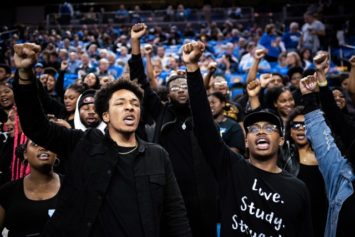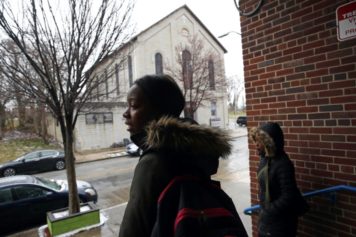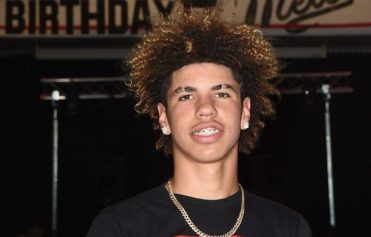Jahmia Edwards cried when she opened the letter saying she’d been admitted to UCLA, the college she’d dreamed of attending since childhood.
The 18-year-old senior at Alliance William & Carol Ouchi High School in South Los Angeles quickly dismissed UC Merced, Cal Poly Pomona and Syracuse University, the other schools where she’d been accepted.
It has taken weeks, however, for her classmate, Sabrina Montgomery, 17, to decide on a college, weighing the strengths and weaknesses of UCLA versus UC San Diego, after not getting into her No. 1 choice, UC Berkeley.
Her decision was UCLA. San Diego offered proximity to the beach, but information about some racially charged incidents was dismaying to the African-American student, and she said she didn’t feel quite as welcome.
In California and across the nation, students are reassessing campuses, consulting counselors and crunching financial aid numbers ahead of Thursday’s Decision Day deadline to submit deposits to their college of choice.
Edwards and Sabrina, like many other Black students, are weighing other concerns, too, such as the campus climate and the presence of student groups, faculty and mentors who would provide a network of support.
In the nearly 20 years since California voters approved Proposition 209, banning consideration of race in public college admissions, the number of Black students at UCLA, UC Berkeley and other campuses has plummeted.
University of California leaders say that they want to improve those figures and that campuses are attempting more outreach into predominantly minority high schools, among other things. But for Black students, a campus with few of their peers can be a daunting prospect.
On the UC San Diego tour, for example, Sabrina said that members of the Black Student Union discussed racial harassment at the 30,000-student campus, where about 2 percent of undergraduates are African-American.
The university faced scrutiny from the federal government after several racially tinged incidents, including a noose left in the campus library and an infamous off-campus fraternity party dubbed the “Compton Cookout” in 2010. The school created a special office of equity and diversity, and administrators pledged to provide more preventive training for staff and students and increase recruitment of low-income and minority students.
“They didn’t want to scare us, but they wanted us to know the issues were real and that we shouldn’t be surprised,” said Sabrina, who also attends Ouchi. “Stuff like this happens at other prestigious colleges because of the low number of African-American students. It’s not the only reason for not going to San Diego, but I just didn’t see myself as a part of the campus.”
Some Black and Asian students at UCLA also have denounced the racial climate at the Westwood campus, after recent incidents of students receiving hate mail and the posting of offensive fliers. But senior Raven Tripplett said she was impressed by the school’s summer transition program for freshmen and the support she will receive from the campus Afrikan Student Union.
Read the full story at latimes.com


